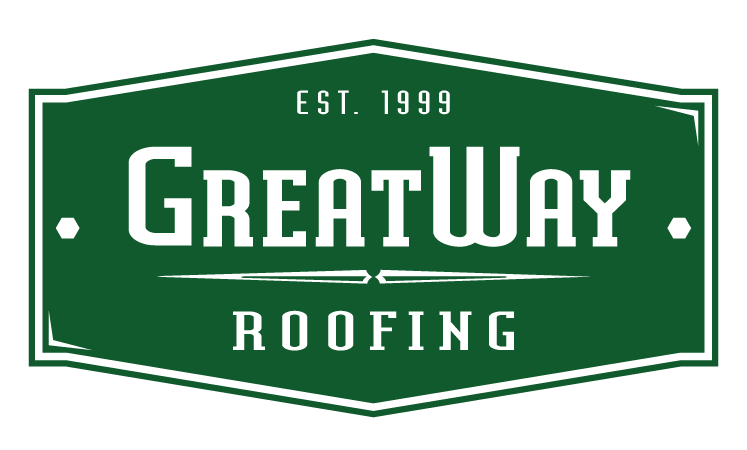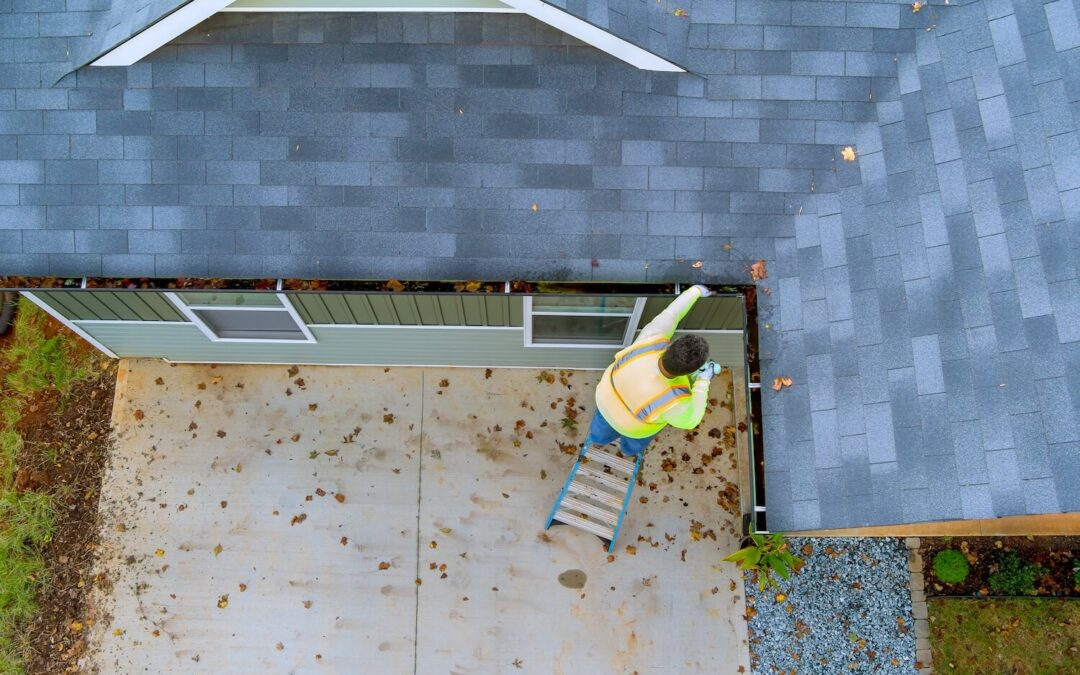When was the last time you checked your gutters? If you’re like many homeowners, it’s probably been longer than you’d like to admit. Gutters are one of those parts of the home that we often take for granted—until something goes wrong. Despite their inconspicuous nature, gutters serve as a silent protector of your home, channeling rainwater safely away from critical structures like the roof, foundation, and walls.
Failing to keep gutters clean can lead to a cascade of problems, from water damage to pest infestations and even foundation failure. Moreover, the costs of repairing these issues far outweigh the time and effort required for routine maintenance. This article will explore the many benefits of keeping your gutters clean, the hidden dangers of neglecting them, and how you can create a seasonal maintenance plan to keep your home safe and sound.
The Vital Role Home Gutters Play
It’s easy to overlook your gutters, but they are critical to your home’s overall design and functionality. Gutters aren’t just an afterthought slapped onto the edges of your roof—they are a key part of your home’s drainage system, specifically engineered to protect every major structure from the damaging effects of water. Let’s break down their importance in greater detail.
1. Water Collection and Safe Diversion
Rainfall might seem harmless, but the volume of water a single storm produces is staggering. Consider this: one inch of rain on a 1,000-square-foot roof produces approximately 600 gallons of water. Without gutters, all that water would pour off the roof edges and cascade down the sides of your home, eroding the soil, drenching your walls, and pooling around the foundation.
Gutters act as a controlled channeling system, collecting rainwater as it flows off the roof and directing it to specific, safe areas through downspouts. This diversion system prevents water from accumulating in unwanted places, safeguarding the structural integrity of your home while also reducing the risk of water damage to landscaping, walkways, and patios.
2. Protection for the Foundation
Your foundation is the base upon which your home stands, and its stability is essential for the safety and longevity of your property. However, water is the number one enemy of foundations.
When rainwater is not directed away from the base of your home, it can saturate the soil around the foundation. Over time, this leads to hydrostatic pressure—where the soil expands as it absorbs water and presses against your foundation walls. This pressure can cause cracks, weakening the structure and eventually allowing water to seep inside.
Gutters act as the first line of defense against costly and potentially dangerous foundation damage by keeping water away from the foundation.
3. Preservation of the Roof
Your roof is your home’s first barrier against the elements, but it’s only as effective as the drainage system supporting it. When water is allowed to collect on the roof due to clogged or inefficient gutters, it can lead to a range of problems:
- Shingle Deterioration: Prolonged exposure to standing water causes shingles to warp, rot, or lose their protective granules.
- Wood Rot: Many roofs have wooden components like fascia boards and underlayment. Persistent moisture leads to decay, which compromises the roof’s overall stability.
- Ice Dams in Winter: Water can freeze in gutters, forming ice dams. These blockages prevent water from draining, forcing it back onto the roof and under the shingles, leading to leaks and water damage inside the home.
Clean gutters ensure that water flows freely off your roof and into the downspouts, preventing these issues and extending the life of your roofing materials.
4. Safeguarding Walls and Siding
If your gutters aren’t functioning properly, water flowing off the roof will run directly down the sides of your home. Over time, this constant exposure to moisture can cause significant damage to your walls and siding:
- Paint Peeling: Paint is your home’s first defense against the elements. Continuous water exposure causes paint to bubble, peel, and crack, leaving your siding vulnerable to further damage.
- Wood Rot and Mold: Water seepage in homes with wooden siding leads to rot, which compromises the wood’s strength and appearance. Mold and mildew can also grow, creating an unsightly and unhealthy environment.
- Structural Damage: Over time, excessive water exposure can weaken walls, leading to sagging, bulging, or even structural collapse in extreme cases.
Clean gutters ensure water flows safely away from the home’s exterior, keeping your siding intact and preserving your home’s appearance.
5. Landscaping and Soil Erosion Prevention
A beautiful yard adds curb appeal and value to your property, but overflowing gutters can quickly undo your landscaping efforts. Without gutters to direct water away from your home, rain can wash away mulch, topsoil, and even the roots of plants.
Erosion impacts aesthetics and has practical consequences. Over time, soil erosion can alter the grading of your property, leading to uneven ground and water pooling closer to the foundation. If left unaddressed, this can increase the likelihood of basement flooding and foundation issues.
Well-maintained gutters preserve your landscaping by channeling rainwater safely away, ensuring your plants, shrubs, and lawn remain healthy and your property grading stays intact.
6. Protection Against Pest Infestations
Another often overlooked role of gutters is pest prevention. When gutters function properly, they prevent water from pooling on your roof or around your foundation, which are common breeding grounds for pests like mosquitoes, termites, and rodents.
- Mosquitoes: Standing water in clogged gutters provides the perfect environment for mosquitoes to breed, increasing the risk of bites and diseases.
- Termites and Carpenter Ants: Persistent moisture attracts wood-destroying pests like termites, which can cause severe structural damage.
- Rodents and Birds: Leaves and debris in gutters can create nests for rodents, birds, and squirrels, which may eventually find their way into your home.
By ensuring gutters are clean and free of debris, you eliminate these pest-attracting conditions and keep your home safe from infestations.
7. Maintaining Overall Home Value
Lastly, gutters play a significant role in preserving your home’s value. Water damage to the foundation, roof, siding, or landscaping can reduce the resale value of your home and make it less appealing to potential buyers.
Clean gutters protect your home’s structural integrity and contribute to its curb appeal, ensuring your property remains an attractive and valuable asset.
Consequences of Neglected Home Gutters
Now that you understand gutters’ purpose, let’s discuss what happens when they are clogged or poorly maintained. Many homeowners don’t realize the extent of the damage that neglected gutters can cause until it’s too late. Here are some of the most common and costly consequences:
1. Foundation Damage
One of the most serious risks of clogged gutters is damage to your home’s foundation. Water pooling around the base of your home can cause the soil to expand and contract, leading to cracks and uneven settling. Over time, this can result in major structural issues that are expensive and time-consuming to repair.
2. Roof Deterioration
Clogged gutters prevent water from flowing off your roof, leading to standing water. This can cause shingles to warp, wood to rot, and leaks to develop. It can also lead to ice dams in colder climates, which can tear shingles off and cause water to seep into your attic.
3. Basement Flooding
When water isn’t properly directed away from your home, it often finds its way into the basement. This can result in flooding, water damage, and mold growth. A flooded basement damages your belongings and poses health risks due to mold and mildew.
4. Pest Infestations
Clogged gutters filled with debris, leaves, and standing water are a breeding ground for pests like mosquitoes, rodents, and termites. These pests can quickly spread to other areas of your home, creating additional problems and expenses.
5. Exterior Damage
Overflowing gutters can cause water to run down the sides of your home, leading to stains, peeling paint, and rotting wood. If the issue persists, it can even compromise the structural integrity of your walls.
6. Erosion of Landscaping
Water overflowing from your gutters can wash away mulch, soil, and plants, leaving your yard looking bare and uneven. Erosion also exposes your home’s foundation, making it more vulnerable to damage.
7. Ice Dams in Winter
During winter, clogged gutters can trap water that freezes into ice. Ice dams prevent proper drainage and can cause water to back up under your shingles, leading to leaks and extensive roof damage.
The Financial Benefits of Regular Gutter Maintenance Services
Cleaning your gutters may seem minor, but the financial benefits are significant. Here’s why regular maintenance is a smart investment:
1. Avoid Costly Repairs
Foundation repairs, roof replacements, and basement water damage restoration can cost thousands of dollars. You can avoid these expensive issues by spending a small amount on regular gutter cleaning.
2. Extend the Lifespan of Your Gutters
When gutters are clogged, they become heavy with debris and water, which can cause them to sag, pull away from your home, or even collapse. Regular cleaning ensures your gutters remain in good condition for years to come.
3. Protect Your Home’s Value
A well-maintained home retains its value better than one with visible signs of neglect, such as water stains or sagging gutters. Keeping your gutters clean helps preserve your home’s appearance and resale value.
4. Save on Energy Costs
When gutters direct water away from your home, they help prevent moisture from seeping into your walls and insulation. Dry insulation is more effective at regulating indoor temperatures and reducing heating and cooling costs.
Seasonal Maintenance Tips for Home Gutters
Adapting your maintenance routine to the changing seasons is essential to ensuring your gutters remain in excellent condition year-round.
Spring
- Clear out leaves, twigs, and debris left over from winter.
- Inspect for damage caused by rain or wind.
- Check that downspouts are clear and functioning properly.
Summer
- Clean gutters after heavy rainstorms or high winds.
- Remove any nests or debris brought in by birds or rodents.
- Check for signs of rust or sagging.
Fall
- Remove fallen leaves and other debris before the first frost.
- Install gutter guards to reduce the buildup of debris.
- Inspect for leaks or damage before winter arrives.
Winter
- Ensure gutters are clear of debris before the first storms.
- Check for damage after severe storms or heavy rainfalls.
Benefits of Keeping Your Gutters Clean Conclusion
Your gutters may not demand daily attention, but they play a vital role in safeguarding your home. Ignoring them can lead to severe and costly damage, from water-logged basements to cracked foundations and deteriorating roofs. By prioritizing routine gutter maintenance, you’re not just protecting your home—you’re preserving its value, ensuring its longevity, and providing peace of mind for years to come.
Whether you decide to tackle gutter cleaning yourself or leave it to professionals, taking a proactive approach can save you from unexpected repairs’ stress and financial burden. Remember, clean gutters are more than a seasonal chore—they’re an investment in your home’s future. So don’t wait for damage to happen. Make gutter maintenance a regular part of your home care routine, and your property will thank you.

